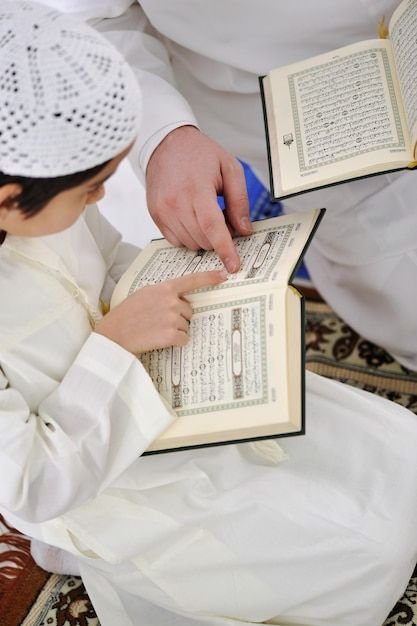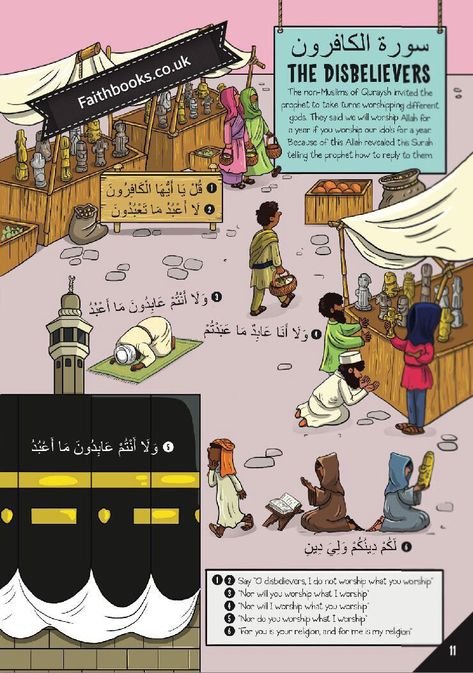
BOOK FREE SESSION
Teaching Fun facts about the Quran for Kids is a rewarding journey filled with opportunities for learning, growth, and spiritual development. The Quran, the holy book of Islam, holds a treasure trove of wisdom, stories, and guidance that can captivate young minds. Parents and educators often seek engaging ways to introduce children to this sacred text, sparking their curiosity and nurturing their faith through Fun facts about the Quran for Kids.
In this article, we’ll delve into some intriguing questions: What are the most Fun facts about the Quran for Kids that can captivate kids? How can we teach the Quran to children effectively, ensuring they understand and appreciate its significance? What impact does the Quran have on young hearts and minds? We’ll also explore top quotes from the Quran that resonate with children and look at fun, creative methods to make Quran learning an enjoyable experience.
Top 10 Fun Facts About the Quran for Kids
Here are some Fun facts about the Quran for Kids:
1.The Longest Surah:
The longest chapter in the Quran is Surah Al-Baqarah, which has 286 verses.
2.The Shortest Surah:
The shortest chapter is Surah Al-Kawthar. One of the Fun facts about the Quran for Kids is that it has only three verses.
3.Revealed Over 23 Years:
The Quran was revealed to Prophet Muhammad (PBUH) for 23 years.
4.A Global Book:
The Quran has been translated into many languages, making it accessible to people worldwide.
5.Memorization Feats:
Many Muslims, including children, memorize the entire Quran, becoming Hafiz.
BOOK FREE SESSION
6.The First Word:
The first word revealed to Prophet Muhammad (PBUH) was “Iqra,” meaning “Read.”it is one of the Fun facts about the Quran for Kids
7.Miraculous Preservation:
The Quran has remained unchanged since it was revealed over 1400 years ago.
8.A Book of Science:
The Quran contains many verses that align with modern scientific discoveries.
9.Special Calligraphy:
The Quran is often written in beautiful Arabic calligraphy.
10.Guidance for All Ages:
The Quran guides people of all ages, including children.
That was a group of Fun facts about the Quran for Kids you can use to teach your children.
A theme that may pique your curiosity: Guaranteed Quran courses
How to Teach the Quran to Kids
Here are some effective Tactics for Teaching Kids the Quran:
1. Share Quranic Stories:
Engage children with inspiring Quranic stories through bedtime books or Islamic cartoon videos to instill love and understanding of the Quran.
2. Make It Fun:
Incorporate interactive and enjoyable activities to make Quran learning engaging, increasing the likelihood that children will retain what they learn. Teach them Fun facts about the Quran for Kids .
3. Set a Practical Example:
Demonstrate regular Quran recitation and attachment to Allah to inspire children through actions rather than words.
BOOK FREE SESSION
4. Praise Their Efforts:
Encourage and support children’s progress with positive reinforcement to boost their motivation and performance.
5. Keep It Simple:
Avoid overwhelming children with long sessions and provide them with Fun facts about the Quran for Kids. . Focus on maintaining their comfort and productivity with patient, step-by-step learning.
6. Stay Consistent:
Establish a daily routine for recitation and Tajweed to help children develop a meaningful relationship with the Quran and Allah.
7. Repetition:
Use repetition as a key learning aid. Recite short Surahs regularly and play the Quran at home to familiarize children with its verses.
8. Online Quran Courses:
Enroll children in online Quran courses for flexible and effective learning tailored to their needs and proficiency levels.
9. Private Tutors:
Hire a skilled Quran tutor to teach accurate recitation and fun facts about the Quran for Kids.
and engage children with practical techniques.
10. Consistent Schedule:
Create a regular study routine to instill discipline and commitment, ensuring steady progress in Quranic Arabic.
11. Interactive Tools:
Utilize educational apps, videos, and games to make learning the Quran engaging and fun, providing Fun facts about the Quran for Kids and instant feedback for improvement.
BOOK FREE SESSION
12. Group Learning:
Join group sessions to provide a community feel, dynamic interaction, and motivation through friendly competition.
13. Quranic Culture Immersion:
Encourage participation in Islamic lectures, community study groups, and visits to historical Quranic sites for a deeper appreciation.
14. Creative Expression:
Allow children to express their understanding through art, poetry, or songs inspired by Quranic teachings.
15. Feedback and Adaptation:
Regularly seek children’s feedback and adjust learning strategies to meet their preferences and strengths for a more effective learning experience.
the Impact of the Quran on Kids
These are the impacts that the Quran has on children, and that is why Kids should learn the Quran and some Fun facts about the Quran for Kids.
The Impact of the Quran on Children
In a world filled with moral challenges and social temptations, teaching the Quran to children is foundational in shaping their characters and instilling ethical values. It’s not merely about learning words and rules; the Quran serves as a guiding light for life’s paths and a director of behavior and conduct. It is the ideal curriculum for raising new generations with lofty values and noble morals.
BOOK FREE SESSION
Building a Moral Foundation
Learning the Quran contributes to building a strong foundation of ethical values in children. It teaches them principles such as honesty, justice, mercy, tolerance, and humility, which form the basis for a distinguished character and positive behavior.
Developing Religious Awareness
Through studying the Quran and understanding its meanings, children’s religious and spiritual awareness grows. They gain a deep understanding of the principles of faith and worship, which makes them more upright and closer to Allah.
Encouraging Generosity and Cooperation
The Quran encourages giving, helping others, and cooperating in goodness and righteousness. By teaching these values, children learn the importance of serving the community and contributing to the betterment of others’ lives.
Promoting Respect and Tolerance
Learning the Quran teaches children the importance of respecting others and dealing with them with tolerance and kindness. They learn how to coexist with individuals from different backgrounds and respect diverse opinions and cultures.
Building Positive Character
Learning the Quran helps in building balanced positive characters. Children become more aware of their actions and behavior, learning to control their reactions and align them with Quranic teachings.
BOOK FREE SESSION
10 facts about the Quran

1 -The Holy Quran has 114 surahs & The Holy Quran has 30 parts.
2-The revelation started in the Holy month of Ramadan.
3-Quran was revealed over 23 years: 13 in Mecca and 10 in Madina.
4-Whoever reads one letter of the Quran gets 10 Rewards.
5-Baqarah is the longest sura but Kawthar is the shortest sura.
6-Quran was revealed to Prophet Muhammad (PBUH) through the angel Jibril.
7-Prophet (PBUH) was 40 years old when the first verse of the Quran was revealed to Him.
8-The literal meaning of the Quran is “that which is being read”.
9- 25 Prophets are mentioned in the Holy Quran.
10-The Quran will intercede for people who recited it on Judgment Day.
BOOK FREE SESSION
When Is the Best Time to Teach the Quran to Kids?
Children can start memorizing the Quran from the age of 3 to 6 years old, as they can absorb information quickly at this stage, helping them retain what they memorize. At an early age, children can begin by memorizing the shorter surahs, as they are quick and easy to memorize, which encourages them to continue with their memorization later on.
Give your child the gift of Quranic knowledge and strong moral values by enrolling them in Sheikh Saleh Academy. Our specialized Quran courses, designed for all ages, are taught by expert tutors and offer flexible online access. We make learning enjoyable with interactive tools, stories, and activities that keep students engaged and motivated. Sign up now for a free trial lesson and start your journey with Sheikh Saleh Academy. Visit our website today!
Where Can Kids Find Fun facts about the Quran for Kids?
Kids can find Fun facts about the Quran for Kids at Sheikh Saleh Academy! Our courses not only teach Quranic recitation and Tajweed but also include engaging lessons that highlight fascinating facts about the Quran. Enroll now to explore and learn more about the Quran in a fun and interactive way. Visit our website today!
Why Is the Quran Important for Kids?
The Quran is crucial for children as it instills values of respect, tolerance, and kindness. By learning the Quran, children understand the importance of treating others with empathy and respect for diverse cultures and opinions. Moreover, Quranic teachings guide them in developing positive character traits, such as self-control and moral integrity. This foundation not only shapes their behavior but also prepares them to contribute positively to society, fostering a harmonious and compassionate community.
Facts about the Quran kG2
Here are some Fun facts about the Quran for Kids KG2:
- Muslims believe in one God, called Allah.
- They follow five important things called the Five Pillars of Islam: believing in one God, praying five times a day facing Mecca, giving to charity, fasting during Ramadan, and making a special trip to Mecca once in their life if they can.
- Many Muslims go to mosques to pray, especially on Fridays.
- They take off their shoes and wash them before praying to keep them clean.
- Muslims’ holy book is called the Quran, full of sacred words from Allah to guide how they live.
- They also celebrate two special holidays, Eid al-Fitr and Eid al-Adha, with yummy food, gifts, and nice clothes.
BOOK FREE SESSION
Shaikh Saleh Academy courses:
- Quran Reading Basics Course
- Quran Recitation with Tajweed Course
- Quran Memorization Courses
- Quran Ijazah Courses
- Islamic Studies Course
- Arabic Language Course
Top 10 Quotes from the Quran for Kids
Here are 10 quotes from the Quran suitable for kids:
“إِنَّمَا الْمُؤْمِنُونَ إِخْوَةٌ”
“The believers are but brothers.”
: This verse emphasizes the unity and brotherhood among believers, encouraging mutual respect and harmony.
“فَأَصْلِحُوا بَيْنَ أَخَوَيْكُمْ”
“So make reconciliation between your brothers.”
: It encourages resolving conflicts and promoting peace among fellow believers.
“وَلَا تَلْمِزُوا أَنْفُسَكُمْ وَلَا تَنَابَزُوا بِالْأَلْقَابِ”
“And do not insult one another and do not call each other by [offensive] nicknames.”
: This verse teaches children to avoid insulting others and using hurtful words or names.
“لَا تَدْخُلُوا بُيُوتًا غَيْرَ بُيُوتِكُمْ حَتَّى تَسْتَأْنِسُوا وَتُسَلِّمُوا عَلَى أَهْلِهَا”
“Do not enter houses other than your own houses until you ascertain welcome and greet their inhabitants with peace.”
: It teaches the etiquette of seeking permission before entering someone’s home and greeting them with peace.
“يأَيُّهَا الَّذِينَ آمَنُوا لَا تَتَّبِعُوا خُطُوَاتِ الشَّيْطَانِ”
“O you who have believed, do not follow the footsteps of Satan.”
: This verse advises children to avoid evil deeds and behaviors that lead away from righteousness.
“مَا يَلْفِظُ مِنْ قَوْلٍ إِلَّا لَدَيْهِ رَقِيبٌ عَتِيدٌ”
“Man does not utter any word except that with him is an observer prepared [to record].”
: It reminds children that every word they speak is recorded by Allah, encouraging them to speak truthfully and kindly.
“وَأَمَّا بِنِعْمَةِ رَبِّكَ فَحَدِّثْ”
BOOK FREE SESSION
“And proclaim the favors of your Lord.”
: This verse encourages children to be grateful and to share the blessings they receive from Allah with others.
“لئِن شكرتم لأَزيدنكم”
“If you are grateful, I will surely increase you [in favor].”
: It teaches children the importance of gratitude, promising that Allah will increase their blessings if they are thankful.
“فاذكروني أذكركم”
“So remember Me; I will remember you.”
: This verse emphasizes the importance of remembering Allah through prayers, good deeds, and devotion.
“إِنَّ رَبَّكَ لَبِالْمِرْصَادِ”
“Indeed, your Lord is ever, over you, an Observer.”
: It reassures children that Allah is watchful over them, guiding and protecting them always.
These verses from the Quran provide children with moral guidance, encouraging kindness, gratitude, respect, and obedience to Allah’s teachings.